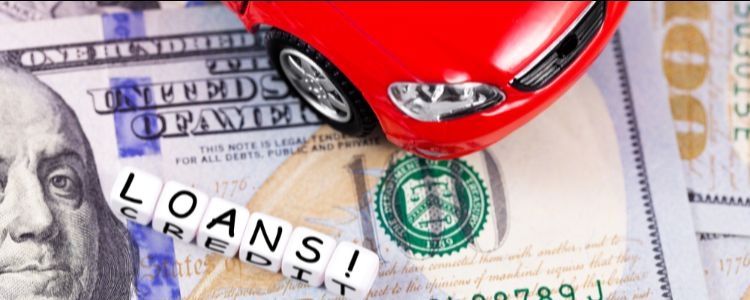Refinancing your auto loan doesn't have a cost, per se, but there might be costs involved in the process depending on your situation. The purpose of refinancing is typically to save money each month by lowering your loan payment. Let's look at how it works and what it might cost you.
What's Refinancing?
 Refinancing is a process used to get a new loan contract on your existing vehicle. This is often done through a new lender, but you can check with your current lender to see if they have refinancing options.
Refinancing is a process used to get a new loan contract on your existing vehicle. This is often done through a new lender, but you can check with your current lender to see if they have refinancing options.
The goal is to save you money on your monthly loan payments, either by lowering your interest rate, stretching out your loan term, or both. All these options save you money each month, but only a lower interest rate saves you money overall. If you simply stretch out your loan term without lowering your interest rate, you actually end up paying more for your car in the long run.
Costs to Refinancing?
Refinancing doesn't have a flat fee, there's no cost associated with it as such. However, the process of refinancing your vehicle might incur costs at a few different points, depending on where you live and the lender you're working with.
For instance, some lenders may charge application or transaction fees. Additionally, some auto loans come with early termination fees that apply when you cancel your loan early for any reason, including refinancing. And, depending on where you live you may have to pay new registration costs, or title transfer fees when your car title is switched to the new lienholder.
ACE Tip: If you're looking to lower your financing costs, be sure to do your homework before heading to a new lender. If there are ETFs associated with your loan, weigh them against your estimated savings from refinancing to decide if it's worth it.
Refinancing and Bad Credit
Like many things that go with traditional auto lending, refinancing typically requires a good credit score – around 670 or above. However, if you originally took out a bad credit car loan, you may be able to refinance if your credit has improved since taking out your loan.
This typically takes some time, and most auto loans aren't available for refinancing until at least one year has passed since the original loan date. Refinancing can be a good opportunity for borrowers with poor credit to lower their rates since they typically qualify for car loans with higher interest rates.
Having an improved credit score is just the beginning if you want to qualify for refinancing. You also need to have a vehicle and loan amount which fall within the new lender's range, and you can't have negative equity in the car.
Ready For Refinancing?
If you're ready to refinance your vehicle to save money on your monthly car loan expenses, we want to help. We have the refinancing resources you're looking for. To get started today, simply request refinancing through one of our trusted refinancing partners.
If you need a new vehicle along with a new auto loan, we can help get you connected to a dealership in your area that works with bad credit borrowers. At Auto Credit Express, we have a nationwide network of special finance dealerships that are signed up with subprime lenders. Start your auto loan journey today by filling out our fast, free, auto loan request form and we'll match you with a local dealer. Get started now!
















